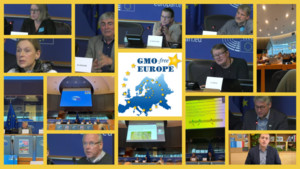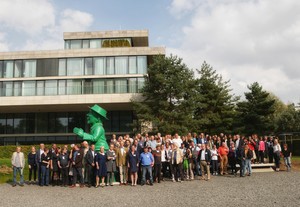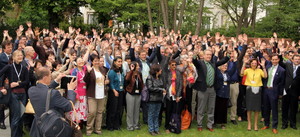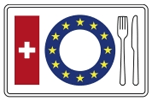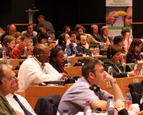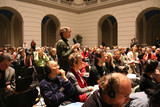
10th GMO Free Europe Conference, Brussels 2023
September 7th 2023, European Parliament, Brussels More than 200 representatives from European national and regional governments, municipalities, farmer’s, food and environmental NGOs, science and business people met live and online at the European Parliament to discuss the EU Commissions proposal to deregulate the Unions legislation on genetic engineering in food and agriculture. Their unanimous verdict: This proposal is unacceptable. It was scientifically flawed and intentionally misleading about the scope and risks of GMOs, ignoring the majority of European citizens clear demand for transparency and labelling of GM food and feed and opening the gates for even more corporate control of the seed market by imposing patents on their CRISPRed traits and varieties.
Members of the Parliament as well as the Austrian minister for environment and climate and the environment secretary of state of Lower Saxony promised to do their best to prevent the industry driven near total deregulation approach of the proposal. The file is now being discussed in the Parliaments environmental and agricultural committees and the Council of agricultural ministers. The organisers regretted that neither the Commission nor the Spanish presidency nor the European Peoples Party, holding the report in the leading environment committee were willing to send representatives to defend their concept and to listen to critique.
We want to thank all speakers and participants for their contribution to the success of the conference!
GMO-Free Europe Event, Brussels 2022
On November 17th 100 participants from Europe met in the European Parliament and another 150 participants from around world joined online the 2022 GMO Free Europe event. They discussed plans of the European Commission to deregulate certain applications of genetic engineering and call them "gene edited" instead of GMO. This would allow placing them on the market without labelling and prior case-by-case risk assessment. Massive concerns from scientists as well as from farmers, producers, retailers were presented. They were followed by an intense policy discussion of NGOs with representatives of the European Commission and the Parliament. Full proceedings in English, French and German as well as presentations are available here.
GMO-Free Europe Conference, Berlin 2018
More than 200 participants from GMO Free Regions throughout Europe, as well as guests from North-America, Asia, New Zealand and Africa (35 nations in total) met in Berlin to discuss new an old challenges of genetic engineering in agriculture as well as the environment at large. They were relieved and reassured by the recent European Court of Justice’ decision that all forms of genetic engineering, including CRISPR-Cas and other forms of so called “gene editing” fall under the European directive on GMOs. This requires risk assessment and specific approval for each GM product, traceability and labelling. For further details and documentation see conference website.
GMO-Free Europe Conference, Berlin 2015
From 6 to 8th May 2015 more than 400 representatives of regional governments, business, science and civil society from 60 countries and all continents met for the 8th conference and 10th anniversary of GMO Free Europe. For further details and documentation see conference website.

GMO-Free Europe Conference,
Brussels 2012
The 7th European GMO Free Regions Conference welcomed 200 participants from 33 countries inSeptember 2012 in Brussels. Key issues were the question of national bans for the cultivation of GMO crops. Sofia Gatica and Maria Godoy, two mothers from Argentina, called upon Europeans to stop the import of GM soybeans. Conference proceedings
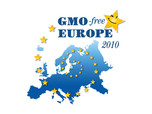
GMO-Free Europe Conference,
Brussels 2010
300 people from 37 countries joined the 6th European Conference of GMO-Free Regions in Brussels and Ghent, 16-18 September 2010, including EU-Commissioner John Dalli, heads of supermarkets and leaders of the GMO Free movement inside and outside Europe. Conference proceedings and audiovisuals
Food+Democracy Conference,
Lucern 2009
On 24/25th April 2009 the 5th European GMO Free Conference was hosted by the Swiss movement against GMOs in Lucern, including the Speaker of the National Council and the head of Parliament of the Canton Lucerne. They welcomed 250 representatives from 39 countries. Proceedings

Planet Diversity Conference,
Bonn 2008
At the occasion of the UN Convention of Biological Diversity's meeting in Bonn, Germany, more than 700 representatives from 100 countries around the world gathered on April 12 to 16 in Bonn, Germany, to celebrate gmo-free agricultural diversity. A global festival, demonstration and 3 day conference with guests from all around the world marked the GMO Free Regions event 2008. Proceedings
GMO-Free Regions Conference, Brussels 2007
300 participants from 37 countries gathered at the European Parliament in Brussels, 19-20 April 2007 to discuss strategies of the GMO free regions movement as well as burning issues such as the impacts of agro-fuels on sustainable agriculture. Proceedings
GMO-Free Regions Conference, Berlin 2006
250 representatives of regional governments, municipalities, companies, farmers unions, consumer and environmental organisations and initiatives from 35 countries met in Berlin on January 14 - 15, 2006, for the 2nd GMO Free Regions conference.
Proceedings
GMO-FREE Europe Conference, Berlin 2005
The First GMO Free Regions Conference took place in Berlin 22-23rd January 2005 in the Harnack house of the Max-Planck Society. 190 participants from 25 countries adopted the "Berlin Manifesto" of GMO Free Regions in Europe. More Details
